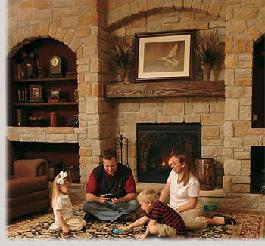Choosing a heating system isn’t as simple as it used to be. In the past there were very few questions asked by your heating contractor, “Gas or oil?”, “warm air or hot water?” Choosing a system today offers much more choice to the consumer. Due to rising costs of home heating, homeowners are taking a closer look at some of the many energy efficient options that are available; ultra-high efficient boilers, weather-compensating controls, solar products, geo-thermal heating, radiant floor heating, etc. Although these products have been around for a long time, they have not been mainstream. Mostly due to the initial investment and the relatively low cost of home heating fuel. As the cost to heat our homes and make hot water rises, these systems that we once considered “out of reach” are starting to make more sense from a financial investment.
Let’s look at a boiler replacement. Your old clunker just started leaking; you got 20+ years out of it (not bad). Your option used to be brand “A” or brand “B”. Either brand was very similar to what you had in there before; same technology, same controls, same efficiency…different color. The fact is that between the 1950’s and early 2000’s, boiler technology in the United States hadn’t changed very much. It didn’t need to, the cost of fuel was reasonable. If it cost you $1,000 per year to heat your home, why would you spend an extra $2,500 for a super high efficiency system to save 15% per year? That’s an annual savings of $150 (more than a 16 year payback). For most people the math didn’t work. Especially considering that the average length of time that we stayed in a house in 1999 was about 7 years. However, that same house that cost you $1,000 /year to heat in 1999 now costs you more than $2,000. Now the annual savings is $300 and the payback is eight years not sixteen. Add to that local utility rebates and it’s the proverbial no-brainer. If you live in Massachusetts, in 2012 your local gas utility offers up to a $1,200 rebate for ultra-high efficiency equipment (96+% AFUE) Let’s see, the gas company is going to give me up to a $1,200 rebate and the upgrade to the high-efficiency boiler is $2,500….its a no-brainer.
Other options available today include solar water heating. Many of us remember solar from the late 70’s and early 80’s…the big oil crunch. Since that time solar water heating (or thermal solar, as opposed to photo-voltaic solar that generates electricity) has drifted off into somewhat obscurity in the United States. Very simply because the return on investment wasn’t there. Also being “green” wasn’t hip or broadcast on every TV station, billboard, milk carton and Wheaties box as it is today. Our society is becoming more environmentally conscience and with that consciousness the desire to do our part. Fortunately for us, many parts of the world continued their green practices after fuel prices in the 1980’s came back down to earth. I say fortunately because technology has continued to evolve and the solar thermal (water heating) products that are available today are much improved and more efficient. Today’s solar thermal systems can reduce our energy consumption for generating hot water in our homes by 60-80% or more. From a straight R.O.I stand point, it’s still a long term investment but there are many reasons to make the investment. Obviously it’s environmentally friendly but can also be a hedge against rising energy costs. If fuel prices go back to where they were in 2008, these systems would pay for themselves in just a few years. Once you make the capitol investment, the energy is free. Ya, that’s right, it’s free (unless we start getting taxed on the sun). In Europe many people approaching retirement age often invest in renewable technologies such as solar thermal (hot water) and solar photo-voltaic (electricity) to control long term energy costs. On a fixed income, why not fix as much of our expenses as possible? Like high-efficiency heating systems, there are tax incentives and utility company rebates to help us offset the initial cost of these systems. The Commonwealth of Massachusetts offers up to $1,000 tax credit for the installation of renewable energy systems in our homes. Again, The American Recovery and Reinvestment Act of 2012, has a provision the grants up to a 30% tax credit (with no cap) to solar installations. Additionally, your local gas company may also offer a rebate for solar. Many of these programs have an expiration date, so check with your local gas utility, tax accountant or go to www.dsireusa.org or www.mass.gov to find out what’s available in your area.
The new 2012 rebate forms have not been published yet, but will be available soon. Cape Cod Homeowners Resource Guide will provide these forms on our website as soon as they are available.
As I mentioned earlier, home heating technology hasn’t changed much in the past 50 years. The majority of existing systems use simple on/off controls to operate. Another option that is available is weather-compensating (or outdoor reset) controls. Outdoor reset is a control method that takes outdoor air temperature into consideration when determining the system water temperature. Rather than just running to a set high limit temperature (i.e. 180º), the temperature limit is “reset” to a temperature high enough satisfy the heat loss for any given outdoor temperature. This method of controlling is the standard in Europe with many countries making it mandatory. Currently the U.S. Department of Energy is considering passing similar legislation. There are many benefits to this method of controlling. By only heating the water to the minimum temperature needed, fuel economy is maximized. Average payback at current fuel prices is three years. Adjusting system water temperature greatly reduces on/off cycling & room temperature fluctuation. The result is a significant increase in comfort level by maintaining more consistent room temperature. System expansion noise is also considerably reduced due to gradual changes in system water temperature. Today’s modern control systems can also integrate all the functions of your heat and hot water system including boiler control, hot water, solar, radiant floor heating, pool heating, etc. This integration allows all system functions to communicate and maximize energy consumption and comfort level.
So, don’t wait for that old clunker to die. Everyday it lives; you are spending more money than you need to. Remember your new system is going to be there for the next 20 years. Will the cost of fuel go up or down? Go on-line, do your homework then talk to your local licensed heating contractor and wisely invest in your financial future (and your comfort). There’s a lot more out there than just brand “A” or brand “B”.
About the Author: Mark Avron has been in the heating industry for over 20 years. He is currently a Regional Sales Manager for Buderus Heating Products. During his 12+ years with Buderus, Mark has provided training for thousands of heating contractors and has been involved in system design, technical support and product development.



